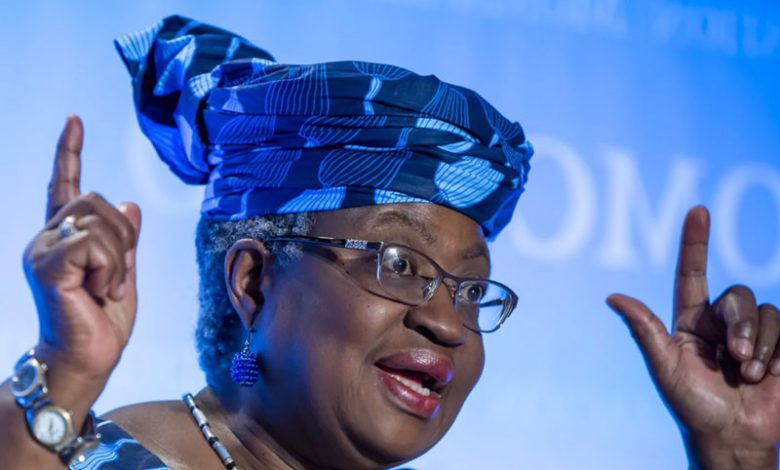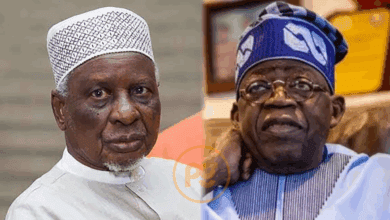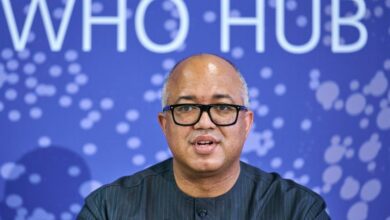Okonjo-Iweala offers recipe on how Nigeria can attain economic growth
Okonjo-Iweala said the country has not been able to succeed in its economic policies due to lack of policy consistency


The Director General of the World Trade Organisation (WTO) , Dr Ngozi Okonjo-Iweala has offered recipe on how Nigeria can attain economic growth.
She said Nigeria needs a social contract to set the country on a steady economic growth and development path, rather than an episodic growth path.
Okonjo-Iweala described the social contract as a “fundamental cross-party, cross-society agreement that certain things in the economy, in the country, in policy and in society are sacrosanct and shall not be touched or changed when administrations change.”
She stated these while delivering her keynote address titled, ” A new social Contract for Nigeria’s Future”, delivered at the opening of the Annual General Conference (AGC) 2024 of Nigerian Bar Association (NBA).
The theme of the conference was
“The Glass is Shattered! Insights from Nigeria’s Female Banking Leaders on Achieving Career Success and Staying Relevant.”
Okonjo-Iweala said the country has not been able to succeed in its economic policies due to lack of policy consistency.
“Nigeria today is not where it should be, and our country has not progressed as it should have.
“That is why, more than 60 years after independence, we are still discussing nation-building. But we must shift our focus from blame games to concrete actions that tackle present and emerging challenges.
“I said this not in recrimination or even in futile regret, but rather as part of moving our country and advancing its interests. We are living in very difficult times, locally here in Nigeria, but also globally.
“I’m not here to castigate or blame anyone, I’m here to speak to all governments of my country, all political parties, all Nigerians, about a positive way forward for the country,” she said.
Dr Okonjo-Iweala noted that successive administrations failed to continue and emphasize good economic and social policies put in place by predecessors but allow politics to frame policies.
“We all understand that where policies are bad and not working, of course politics should intervene. But where things are working to the good, we ask, why fix what is not broken?”
“By social contract, I mean a fundamental cross-party, cross-society agreement that certain things in the economy, in the country, in policy and in society are sacrosanct and shall not be touched or changed when administrations change.”
“The social contract is about how we pool our resources to provide the public goods we agree are needed and how we support those affected by adverse shocks.
“I’m saying is that all major actors in the governance of our country should agree on some basic parameters for security, macroeconomic and social stability, and the enabling environment for future dynamism and growth of our country.
“Once agreed, these parameters and policies should be institutionalized or enshrined in law or even be made part of our Constitution, not to be tampered with, except perhaps through a national referendum involving the entire country and society.
“My convictions on Nigeria’s need for a social contract were reinforced recently when I was in Peru on an official visit.
“Looking at the country as a Nigerian, I was struck by the mismatch between its politics and its economic performance.
She cited political and economic development in Peru and India to buttress her views.
“What I’m saying is this. Maintaining good economic and social policies, that is, maintaining policy consistency, and adding more reforms on top of that will lead us along the path of good progress that we all desire. As we know, our political leaders have thus far never been able to agree to stick to a common set of principles and policies that deliver on a consistent basis for citizens, irrespective of ethnic group or political persuasion.
“A social contract could become a basis for the virtuous circles of reform, growth, peace, security and trust that have too long eluded us. Turning now to potential ingredients of that social contract, the first element should be a shared understanding that we must prioritise the security of life’s property and national assets. We cannot have economic or social development without security, and we certainly cannot have security without development.
“We all know that. Security has been weaponised in our country for political purposes, by political actors, leading partly to the difficult situation we have now. We have politicians who believe that the best way to make their opponents look bad is to instigate insecurity, making it look like they can’t govern.
“Regardless of whether this leads to loss of life and property of innocent Nigerians, this has to stop.
“A second aspect of security relates to security of national assets. Nigerians have seen for years how organised crude oil thefts on a massive scale seriously undermines the economic and financial health of the country.
“All Nigerians must agree that stealing of our national assets of any type is intolerable and must be stopped.
“How can we be struggling to see how to strengthen our foreign exchange reserves with the Government of the Central Bank working so hard on this, when so much is being lost through oil thefts?
“There is so much technology available now to track such thefts, and there must be no more excuses for inaction. Theft of electricity cables is another rampant and very dangerous form of national assets.
“No one should try to tamper with the Central Bank, asking for manipulation of interest rates or the exchange rate. Do not use the Central Bank as a fiscal agent, asking for printing of Naira beyond agreed ways and means limits. Fundamental fiscal and financial rules should be respected once they are on the books.
“Respect the use of the oil price-based fiscal rule that allows the accumulation of reserves and savings in good times to be used to push in bad times. Respect the agreed budget deficit. Keep it as close to 3% of GDP as possible.
“Limit non-transparent extra budgetary spending spent through the budget. Stick to transparency of FACA locations and state and federal budgets so that citizens have a clear view of how their money is being spent. Do not exceed sensible limits for public debt as a percent of GDP.
“For an economy at Nigeria’s stage of development and given its vulnerability, debt-to-GDP ratios should remain well below 40%.
“Debt service to revenue we should strive not to exceed 33% so as not to crowd out operational and capital expenditures. Budget on the basis of a medium-term expenditure framework so as to provide a sound forward-looking platform for economic and budget management.
“Create an investment-friendly business environment cutting down on bureaucracy, licensing and policy uncertainty to encourage the domestic and foreign private sector to invest and remain in Nigeria.
“Respect of the above will ensure a sound macroeconomic framework with core economic management working on an objective basis to become a foundation for investment, growth and employment.”
Meanwhile , President Bola Tinubu has reaffirmed his administration in doing everything possible to address the social and economic challenges facing the country.
President Tinubu who was the Special Guest of honour at the conference stated in his remark while declaring the conference open in Lagos , on Sunday night.
The President, who was represented by Vice President, Kashim Shettima, highlighted some the measures and policies being undertaken by his administration to address the economic challenges.
He contended that the collapsed of the multiple exchange regimes has help to check corruption.
Vice President Shettima reacted to Dr Okonji-Iweala’s speech on the need for a new social contract between the government and the people.
He said: “You have done justice to what is needed in this country. What a German philosopher once said, “let every man sweep the front of his own door, and the whole compound will be free.
“While I acknowledge the temporal existence of some daunting challenges besetting us as a nation, I want to assure you that this government is poised to address all the developmental challenges facing this country and be rest assured that in the fullness of time, this nation shall overcome.
” I want to assure you that this government will continue to uphold top priority to the welfare of the judiciary, to ease avoidable burden on their lordships, and speed up the adjudicatory process which is a sine qua non for social order and economic development.
“Distinguished fellow Nigerians, It is appropriate to refer to the recent landmark position of the Supreme Court granting financial autonomy to the local government councils in Nigeria.
“I commend the upheaval for its consistent sustenance of the tenets of democracy and good governance in the polity.
“Expectedly, this will spur the much desired developments at the grassroots level, while I remain confident that more of such strategic and reform-oriented legal interventions will be achieved.’




